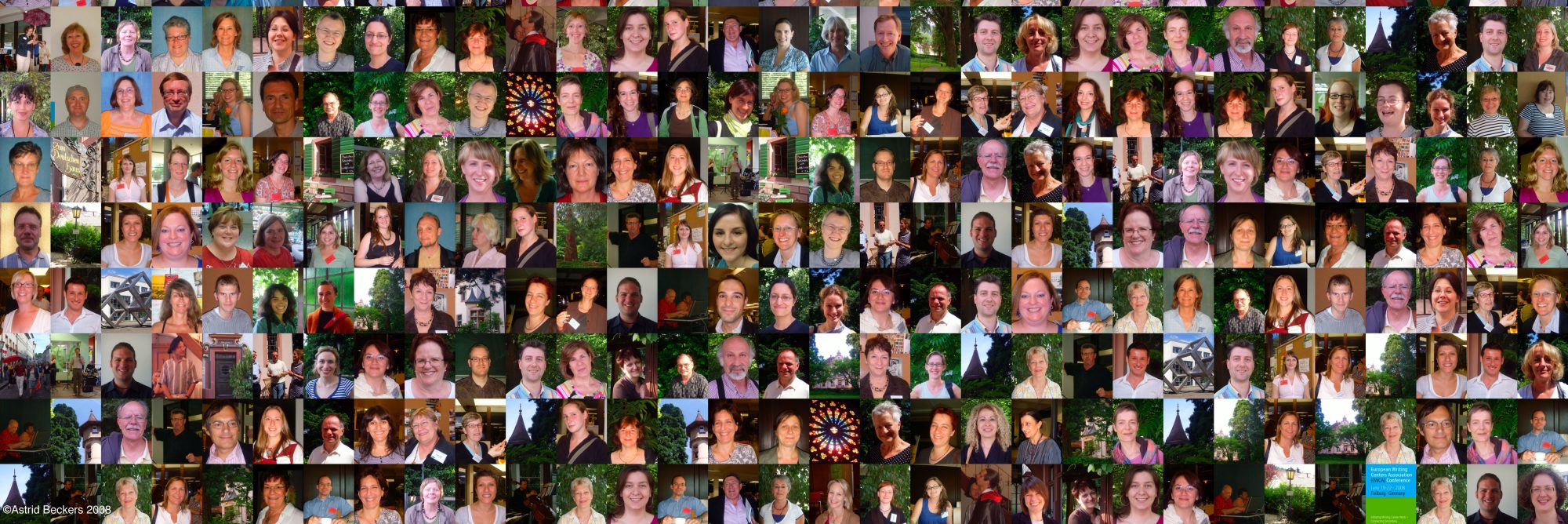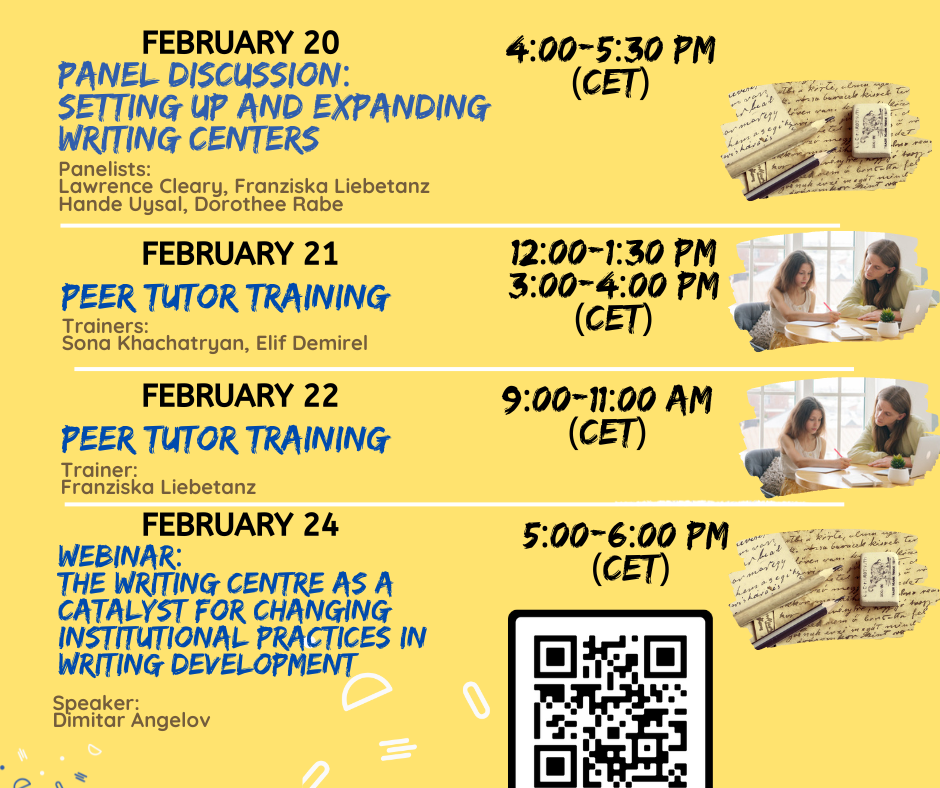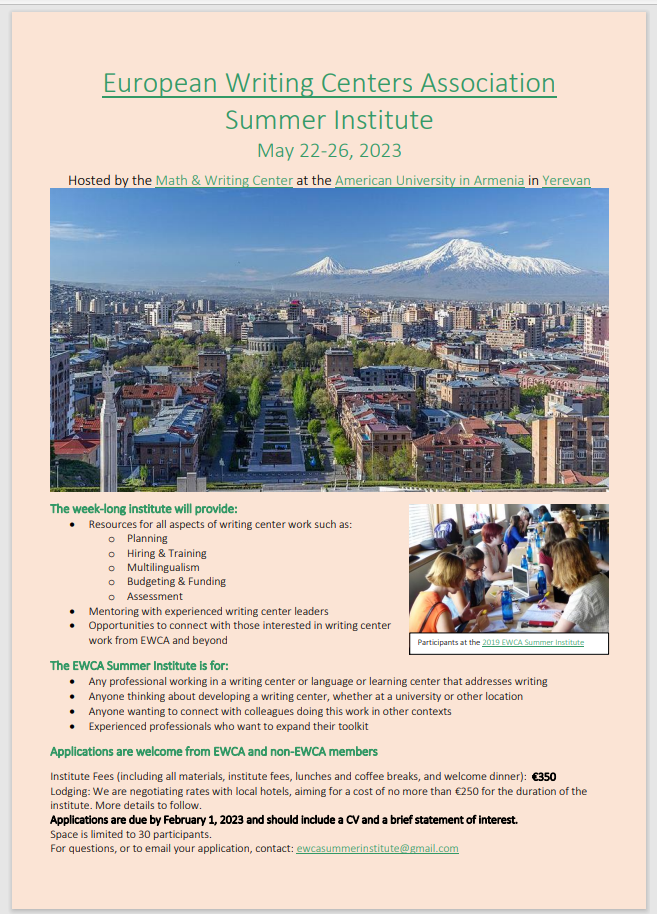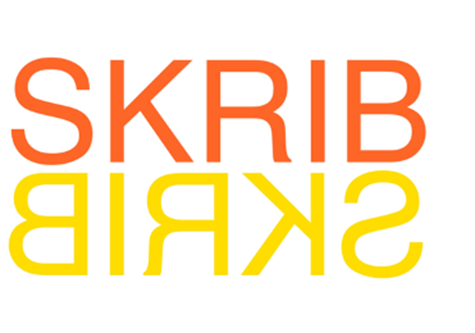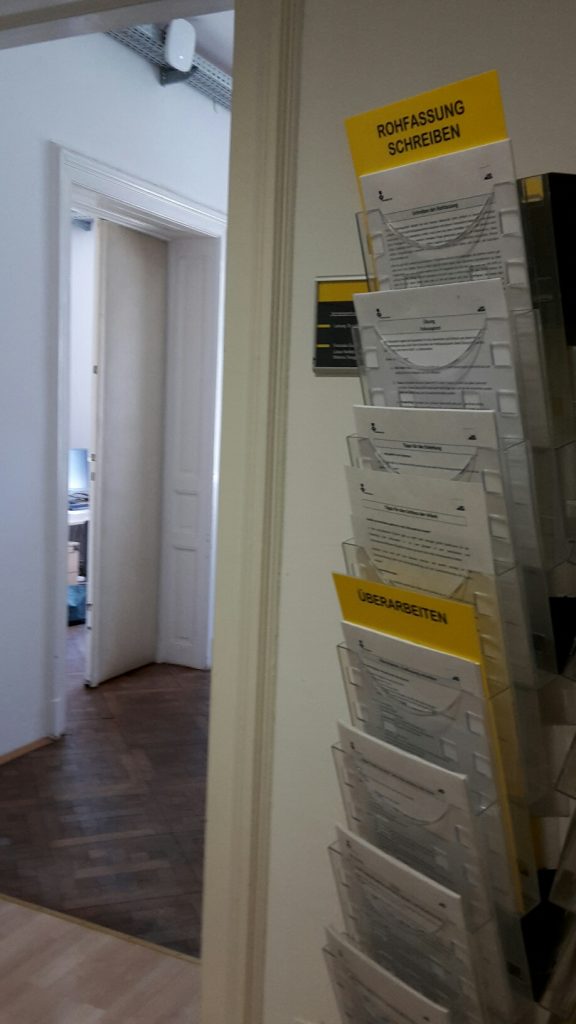Doris Pany-Habsa
Writing Center of the University of Graz, Austria
This year’s EATAW conference opened up a wonderful opportunity to revisit the foundations of teaching academic writing in the light of the pandemic. The conference organizers invited us to think about a series of apparently simple but in effect far-reaching questions. When I read the call for submissions there was one question that in particular appealed to me. It was: “What has changed recently?” This question was an eye-opener for me, because it made me realize that, in our writing center at the University of Graz (Austria), we were so busy adapting to the new situation caused by the pandemic that we had not managed to make time to think about the implications and the significance of the transformations under way. So I decided to take the chance the EATAW conference 2021 offered, and I started to think about the meaning of the changes we had gone through during the pandemic. For the conference, I put down some first and of course very approximate thoughts and ideas. When I presented them at the EATAW conference, the panelists seemed to receive them with interest, and therefore, I would like to share these ideas with the EWCA community here.
My blog post begins by briefly describing the situation in our writing center when the pandemic reached Austria. It will, then, go on to outline the innovations we introduced due to the pandemic. Finally, it concentrates on one central aspect of our digital transformation and suggests an interpretation for that aspect that draws on the so-called practice theory or praxeology.
The pandemic reached our writing center
The pandemic reached Austria more or less at the beginning of the summer term 2020. We still had most of the scheduled workshops ahead of us. I remember that we perceived the situation as very ambiguous. On the one hand, we felt a strong urge to assist students in this difficult situation. We wished to stay in contact with the students, and we wanted to continue the dialogue with them because we always conceived direct interaction with our tutees particularly crucial. For that reason, we considered simply moving online with our workshops and counseling sessions. On the other hand, we had almost no experience with the online tools we would need to achieve this. We were also totally aware that there was a fundamental difference between holding workshops online and holding them in a face-to-face setting. In brief, we realized that we were an extremely ‘analogue’ writing center before COVID-19 and that it would take us some time to familiarize ourselves with the digital mode.
Therefore, we finally decided to take a step back and to cancel our workshops in the summer term. Instead, we developed digital resources students could use asynchronously. We created a series of learning videos explaining writing techniques for the different stages of the writing process, e.g. for developing a research question, for structuring the paper, etc. Whenever we completed a video, we published it on the writing center’s website so that students could access it as quickly and easily as possible. That was the main thing we did during the first semester of the pandemic. For the second semester of the pandemic, the winter term 2020/21, we designed online workshops for relatively small groups of participants (max. of 15), which we delivered through Big Blue Button – so we were able to have group work in breakout sessions – and into which we integrated the learning videos. Since then we have continued doing this.
The praxeological perspective
As I mentioned above, my first ideas about the significance of the changes triggered by the pandemic are inspired by practice theory or praxeology. For all those who are not familiar with this theoretical approach, we can briefly say that it is a loose but nevertheless definable movement of social thought that has taken shape since the 1990s and was advocated by theorists like Theodore Schatzki in the US and Andreas Reckwitz in Germany. The various proponents of praxeology share the conviction – here I quote Schatzki – that “the social is a field of embodied, materially interwoven practices centrally organized around shared practical understandings” (Schatzki, 2001, 3). The important point here is that, when we analyze practices, we do not look at people’s intentions or knowledge, but we look at things people do under certain material conditions, conditions that embrace spatial arrangements, artefacts and media. By analyzing what people do, practice theorists try to discover the shared practical understandings that underlie people’s actions. In this regard, a central praxeological assumption is that those practical understandings do not have the status of explicit knowledge but are rather implicit and not fully transparent to the subjects who perform the practice.
We used to be a very ‘analogue’ writing center
Without doubt, we formed and performed new practices of writing center work during the pandemic without being fully aware of the meaning and the significance inherent to them. By now taking a closer look at some micro-practices that we developed around our new learning videos, I try to get a little closer to the implicit significance of our digital transformation.
At this point, it is necessary to emphasize once more that we used to be a very ‘analogue’ writing center before the pandemic. Actually, we made very little use of digital media. Of course, we used Power Point presentations in our workshops, and we had a digital course management system, but in our core activities, we always tried to have a very direct and conversation-based contact to our tutees. Perhaps the best way to make this clear is by describing the following setting: Before the pandemic none of our materials were available online for download. Instead, our material used to be accessible to tutees in a rotating shelf that we put in front of our office, which can be seen in the photos.
Figure: Photos of the entrance to our writing center and the rotating shelf with our material (Photo: Doris Pany-Habsa)
When someone came to the writing center to take some material, it was possible for us to hear that person from the office and, whenever possible, we stood up to welcome them and started a little conversation to find out what kind of support or material could be useful for them. A practice theorist would probably say that we created a spatial arrangement that required physical co-presence between writing tutor and writer. We created this setting, the practice theorist would continue, out of the underlying conviction that the best way to support writers is by talking to them. Or in other words: Our practice of writing center work was logo-centrically oriented in a very strong way.
The digital transformation of our writing center work
In the pandemic, we were forced to leave this old-fashioned logo-centric practice, and we had to jump right into a digital-based practice. As I mentioned, we developed learning videos that we made available on our website. By doing this we created a situation that was right the opposite of the old one: Our material was now accessible to potentially everybody in the whole world. In theory, that was wonderful and made us very proud, but in practice, we did not hear or see any of the people interested in our material, and we could not talk to them at all. That changed when we started with our online workshops. The workshops always included a theoretical part, where we provided information using our learning videos, and a practical part, where the students did group work in breakout rooms. While our on-campus workshops were held by one or at most two tutors, the first online workshop was held by all of the four tutors who work in our writing center.
That may seem exaggerated, but we all were very curious about the new setting and wanted to be involved in the new experience. Actually, we continued to keep that configuration of four tutors; although, it is not very efficient in terms of deployment of human resources. The main reason why we liked to participate in the workshops all together was probably that, by doing this, we could closely accompany the group work in the breakout rooms. And by taking part in the breakout rooms, we could see and hear the students, and we could finally talk to them again. So it seems that, within the new digital arrangement, we wanted to rebuild a logo-centric nucleus that should somehow manage to preserve our underlying core conviction that it is best to support writers by talking to them.
But where does this imperturbable conviction of ours come from? Let me close by sharing the suspicion I have: Generally, we can say that the average European public university funds a writing center because it hopes that the writing center will help students to pursue and complete their studies quickly and efficiently. So from an institutional perspective, we can say that writing centers are made possible by an instrumental logic of efficiency. This, however, is not the logic we would like to see as the basic principle and motivation for our work. I would even dare to say that this applies not only to our writing center but to very many of them. Instead, we like to think of our work as a practice that empowers people not just in an instrumental sense. Apart from efficient writing habits, we hope that our students will develop insight into the social situatedness of writing, into the agency and the ethic responsibility that writing skills bring about. We could say that it is somehow our hidden agenda to make our students aware of these aspects of writing. And since our university certainly would not let us publish a learning video or a manifesto that explains the above mentioned social and ethical dimensions of writing, it seems that we have to hold on to creating logo-centric spaces in which we can transmit these dimensions in personal face-to-face conversations.
This blog post is based on a presentation held on July 7, 2021 at the EATAW Conference.
References
Reckwitz, Andreas (2003). Grundelemente einer Theorie sozialer Praktiken. In: Zeitschrift für Soziologie 32 (4), 282–301.
Schatzki, Theodore R. (2001). Introduction: practice theory. In: Schatzki, Theodore R. et al. (eds.): The practice turn in contemporary theory. London/NY: Routledge, 1–14.
Author
Doris Pany-Habsa is the director of the Writing Center at the University of Graz, Austria. Originally trained in Literature and Cultural Studies, she holds a PhD in Romance Studies. Her research interests are interdisciplinary writing research, writing pedagogy and writing center work. Latest publications: Knaller, Susanne; Pany-Habsa, Doris; Scholger, Martina (eds.) (2020). Schreibforschung interdisziplinär. Praxis – Prozess – Produkt. Transcript; Pany-Habsa, Doris (2021): „,Wir Schreibbewegten sind ja frohgemut, daß wir Gutes bewirken‘. Zum kreativen Schreiben der Schreibbewegung“. In: JoSch 22 (02/2021), in press.
